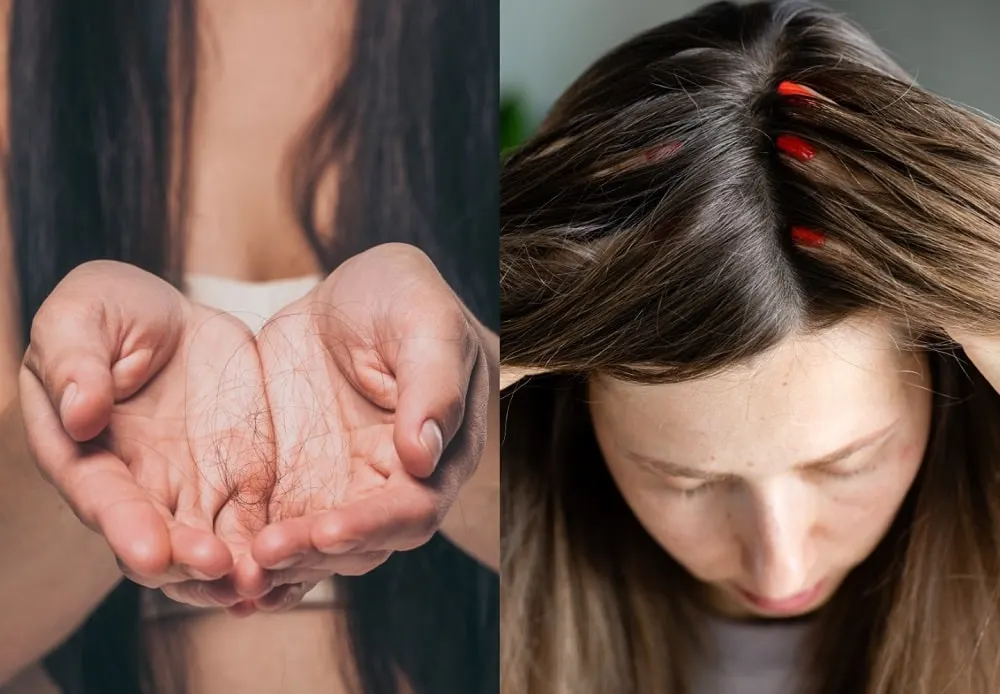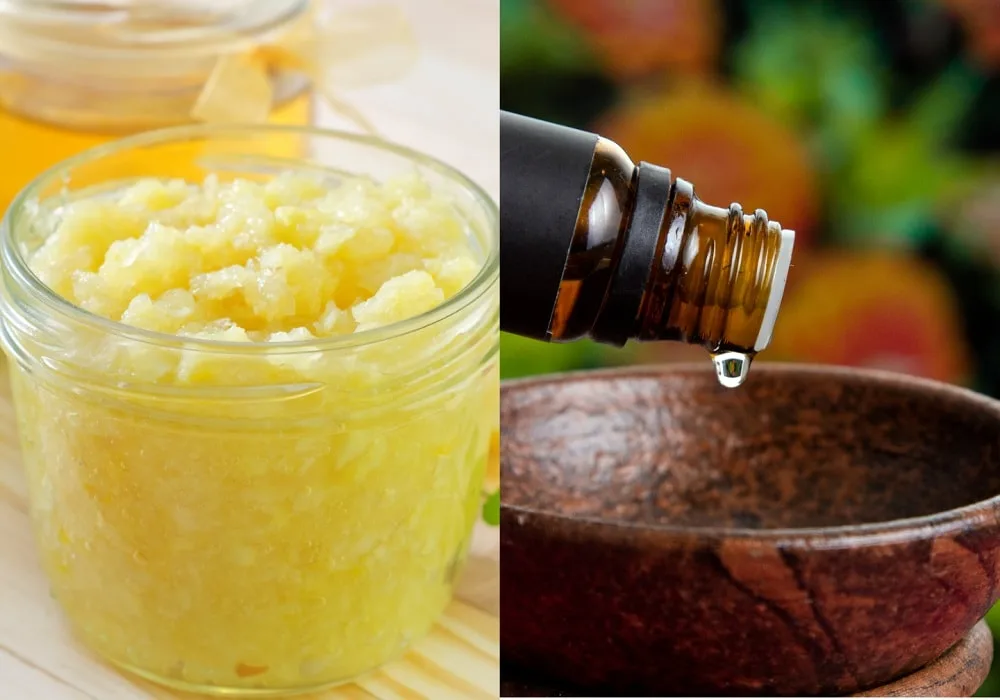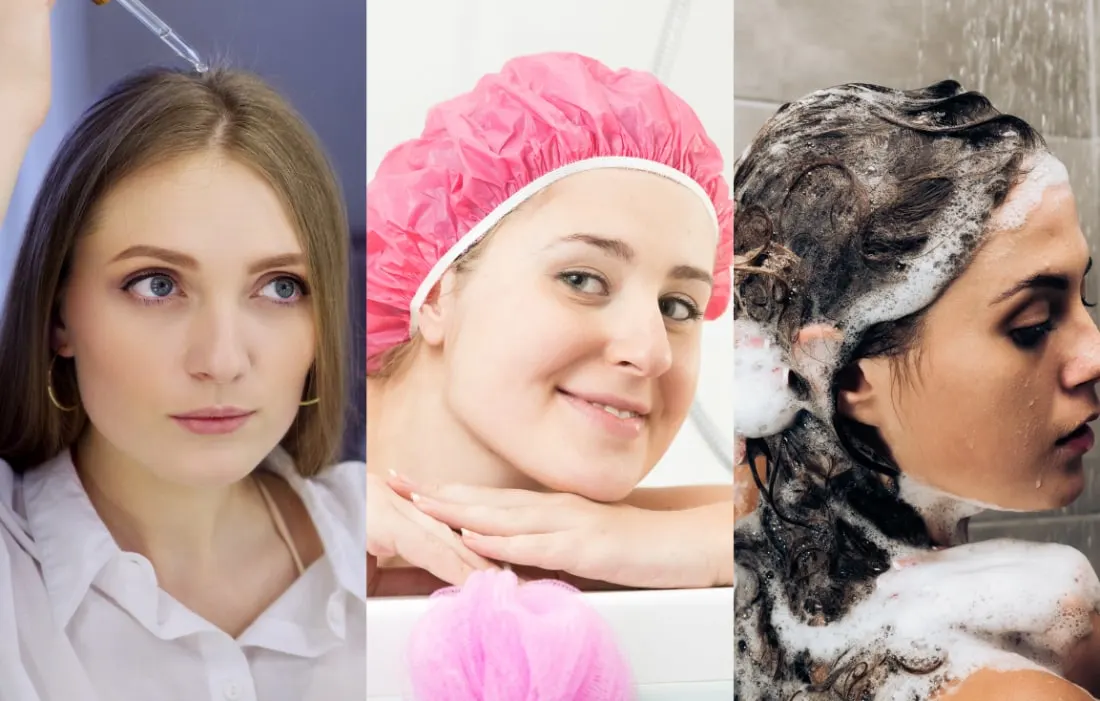Ginger has been used for various medicinal purposes, including nausea, weight loss, arthritis, indigestion, menstrual pain, and much more. Increasingly, people are discovering that you can also use ginger juice for hair.
Most experts recommend only using ginger as a spot treatment for scalp inflammation or acne.
However, you may make ginger juice and use it occasionally as a comprehensive treatment for different hair issues.
Below, we go over the benefits of ginger juice and how to use it on hair properly.
Benefits of Using Ginger Juice on Hair
There is much anecdotal evidence that ginger juice can aid in hair growth. Unfortunately, most research shows otherwise. Some research suggests that gingerol- the ingredient in ginger that many believe increases hair growth- may inhibit hair growth.
Although ginger does not increase hair growth, there are many other benefits to applying ginger to hair, including:
- Hair Loss Prevention: Studies show that ginger may help prevent hair loss, even if it prevents growth. If hair fall is one of your main hair concerns, ginger may be a good option for you.
- Prevent graying and whitening: Ginger contains many antioxidants, such as vitamin c, which can prevent free radicals from damaging the hair shaft. Stopping free radicals and protecting the hair cortex can prevent hair from depigmenting and going gray.
- Dandruff reduction: Ginger is an anti-inflammatory agent, which is one of the main reasons it is popular as a medicine. This anti-inflammatory property may also help reduce the issue of dandruff.
How to Make Ginger Juice for Hair
There are two ways to use ginger on your hair. The first method is to take a ginger root and peel back the outside slightly. You can then rub the root on your scalp. You can also make ginger juice for your hair by following the directions listed below:
- Step One: Peel a whole ginger root
- Step Two: Chop the ginger root into small pieces. This will make it easier to perform the next step.
- Step Three: Put the ginger in the blender with a small amount of water and blend. If the paste is too thick, you can add more water. If it is too thin, you can add more ginger.
You can also add oils and other ingredients to your ginger juice to increase benefits, including:
- Essential oils: The best essential oils for topical treatment include lavender, tea tree, or sandalwood
- Coconut oil: Coconut oil can reduce frizziness and scalp irritation.
- Jojoba oil: Jojoba oil can help soothe the scalp, which may help mitigate some of the irritation that is common with ginger treatments. It is also an excellent moisturizer used in many high-end products.
- Argan oil: Argan oil can help keep your hair moisturized and soft.
- Olive oil: Olive oil is moisturizing and can help prevent split ends. It may also improve hair growth, mitigating some hair growth prevention that ginger can cause.
Some people have suggested adding lemon juice to your ginger juice. You should not mix lemon juice with ginger juice if you plan on applying it to your scalp. This mixture would be very acidic, which is terrible for your hair. Applying acids to your hair can cause frizziness.
How to Apply Ginger Juice to Hair
If you’re having any of the issues that ginger benefits that we discussed above, you may want to use ginger as a topical treatment for your hair. You should not use ginger juice if you are trying to grow your hair out or have problems re-growing from hair loss.
As with any topical treatment, it is important to spot test the juice before use. Do not use ginger on your scalp if you have any itching, redness, swelling, or other adverse reactions from the spot test. Additionally, you should not use ginger as a topical treatment if you are allergic to ginger as a food.
If you have spot tested your ginger juice and are ready to use it as a hair treatment, follow the steps below.
- Step One: Create a part that is far to the side of your head.
- Step Two: Apply the ginger juice to the line that you have created on the side of your head and the scalp around it. Make sure to saturate the area entirely.
- Step Three: Flip over a quarter of an inch of hair from the larger side. Apply ginger juice to this next section of the scalp.
- Step Four: Repeat until your scalp is fully saturated with ginger juice. If you have any leftovers, you can apply them to the driest area.
- Step Five: Cover your hair with a shower cap or plastic bag. The cover will keep your hair from drying out, which would make the ginger challenging to rinse. The moisture will also help your hair absorb the nutrients from the ginger.
- Step Six: Let the ginger sit on your hair for up to 30 minutes. If you feel discomfort, severe itching, or burning, rinse the ginger from your hair immediately.
- Step Seven: Wash your hair thoroughly with your regular shampoo. Condition as you usually would lock the nutrients that your hair has just absorbed.
Is There Any Side Effect of Using Ginger Juice on Hair?
Some research suggests that ginger juice may reduce hair growth. Additionally, some people have had issues with ginger causing redness, itching, swelling, and hives. If you are allergic to ginger, you should not use it as a topical treatment for hair.
Frequently Asked Questions
Here are some answers to the most frequently asked questions about ginger juice for hair.
You should leave ginger juice on your hair for 30 minutes. Any longer may cause irritation and itching, while any shorter will not allow the hair to absorb the nutrients fully.
If you are experiencing discomfort before the thirty-minute mark, you should wash your hair immediately.
No, using ginger juice on your hair overnight will likely result in irritation or redness. In some severe cases, ginger left on the hair for too long has resulted in scalp damage and hives.
Ginger juice is not likely to damage your hair. While it may prevent growth, it will not cause hair loss or breakage. It may, however, cause scalp irritation if used for extended periods.
There is no need to apply ginger juice to your hair daily. While it may be beneficial as the occasional treatment, it should only be applied as needed, not regularly.
Ginger juice has many benefits for hair, including the prevention of hair loss, graying, and dandruff. While ginger juice may not increase hair growth, it can still be used as a hair treatment for other issues.
We provided a complete overview of ginger juice, its benefits, how to use it, and how to make it at home. Hopefully, it will come to your aid.



